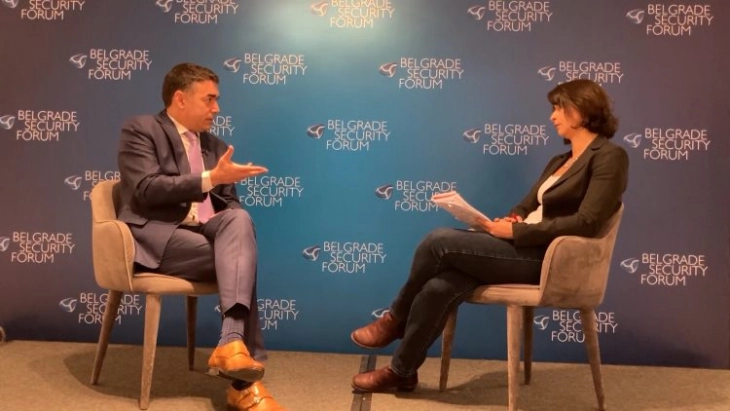Dimitrov: Balkans is not centre of universe, EU has its problems

Belgrade, 28 October 2021 (MIA) - Deputy PM for European Affairs Nikola Dimitrov told N1 in an interview on Thursday that a legitimate issue would be whether the Western Balkans would bring benefits to the European Union or would it only export its problems.
He added that the bloc had its problems, and the Balkans were not the universe’s centre.
„Although we sometimes want and think that, the region is not the centre of the universe and Europe has other, internal problems, problems with decision-making and functioning,“ Dimitrov said.
He added that „perhaps the legitimate question is whether the EU membership of the so-called six states, will bring some value and solutions or more problems. So we, as a region, have the interest to show that we offer solutions, that we are aware enough to take responsibility for ourselves and solve our problems. The more we cooperate, the more valuable we become in the eyes of the member states. It is the same in the economic sense,“ Dimitrov said.
However, he added that although the regional countries discussed the need for cooperation, mutual conflicts occasionally surfaced.
Dimitrov recalled his country changed its name to remove Greece’s obstacle to Skopje’s European integration and that now, Bulgaria was blocking the path with a language issue.
North Macedonia signed the Stabilisation and Association Agreement 20 years ago, before Croatia, which has been a member state for eight years now.
Along that line, Dimitrov warned that „the European promise from Thessaloniki in 2003 is fading. People rightly wonder if this is true and realistic to become part of the European Union. I think that this should worry us and that we should talk about it honestly.“
He added the Macedonians were disappointed, warning about the gradual decline in support for European integration.
„It’s still big, but it’s gradually falling. And the belief that it is possibly declining. That simultaneously weakens pro-European and pro-reform political forces. Both we and the EU have a responsibility to make the pro-European ballot a winner,“ Dimitrov said.
Commenting on relations with Serbia, he said he believed that „there are no any particular problems.
„There is understanding, and I think we have more or less common goals. We have a shared history, a past; we want to have a common European future.“ Dimitrov told N1.







